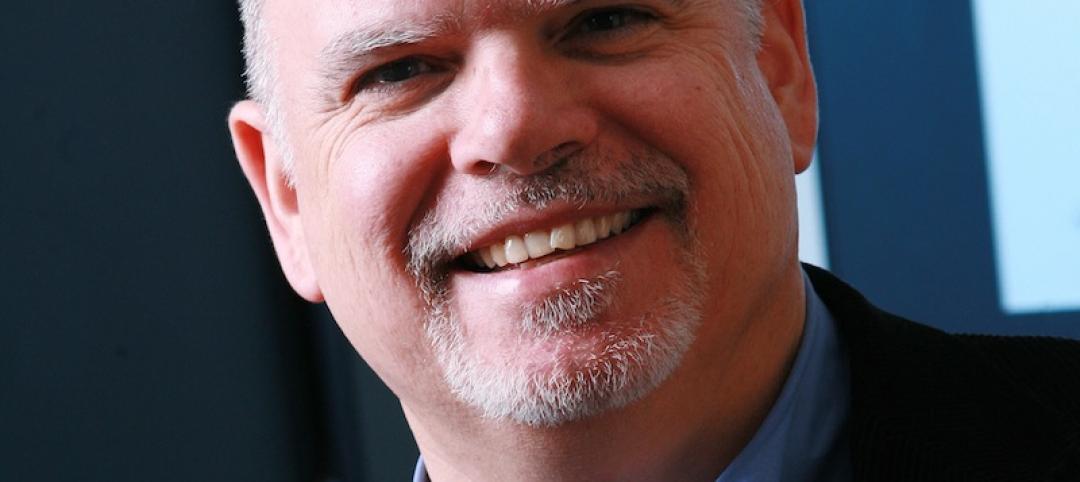By 2050, it is estimated that 70% of the world's population will live in cities. But as society and technology change, so will the urban landscape—and our metropolitan future will be quite different from current cities, according to Fast Company and a panel of design experts.
Across the cultural grid, from food to retail to transportation, America's urban areas are already undergoing a major metamorphosis. Here are the six major trends shaping our cities, from Fast Company:
1. The "sharing economy" will apply to housing, too. The line between public and private spaces will continue to blur as people move into a wider range of spaces with shared kitchens and living rooms, while renting or owning their own bedrooms and bathrooms.
2. Restaurants will double as living rooms. City populations are only getting more densely packed, meaning that living space is at a premium. As homes shrink, restaurants will become not just a place to eat, but needed space for socializing.
3. Your office will look like a library. Every day, it grows easier to work from home. As a result, employees have begun to expect workspaces more comfortable, socially-oriented spaces when they do go into the office, and this is changing how offices are designed.
4. The big-box store will be on the block, but you won't need to go. Big-box retailers such as Walmart and Target are moving into the city, but shopping is slowly booming more automated—so you may simply be able to bring the store home with you.
5. Your health will become a retail product. More healthcare facilities are mimicking retail locations in their style, and health is becoming a consideration for all types of design and building projects.
6. Infrastructure and transportation. Technology will quicken the pace of infrastructure and transportation innovation, making intercity travel faster and safer.
Read the full article at Fast Company.
Related Stories
| Dec 20, 2013
Must see for the holidays: Architects re-create iconic structures using gingerbread
Gensler, PBK, Page Sutherland Page, and Kirksey were among the firms to compete in the 5th Annual Gingerbread Build-Off.
| Dec 20, 2013
Can energy hogs still be considered efficient buildings? Yes, say engineers at Buro Happold
A new tool from the engineering firm Buro Happold takes into account both energy and economic performance of buildings for a true measure of efficiency.
| Dec 18, 2013
How small architectural firms can make big money
What separates the great-but-struggling designers from the great-successful ones isn't luck. If you're as good an architect as you think, it will take more than your awesome design skills to become successful. Learn how to manage your firm’s finances and go from floundering to flourishing.
| Dec 18, 2013
Eskew + Dumez + Ripple receives AIA's 2014 Architecture Firm Award
The American Institute of Architects (AIA) Board of Directors has voted for Eskew + Dumez + Ripple to receive the 2014 AIA Architecture Firm Award. The firm will be honored at the 2014 AIA National Convention in Chicago. The Board also voted to posthumously honor Julia Morgan, FAIA, with its 214 Gold Medal.
| Dec 18, 2013
Architecture Billings Index takes step back in November
After six months of steadily increasing demand for design services, the Architecture Billings Index paused in November, dipping below 50 for just the second time in 2013.
| Dec 17, 2013
Kahn appoints Alan Cobb President and CEO
Cobb is the tenth president in the firm’s 118-year history. As President, Cobb is responsible for ensuring that all of the firm’s client issues are effectively address and that overall project team performance meets or exceeds client expectations for each and job the firm undertakes.
| Dec 17, 2013
CBRE's Chris Bodnar and Lee Asher named Healthcare Real Estate Executives of the Year
CBRE Group, Inc. announced today that two of its senior executives, Chris Bodnar and Lee Asher, have been named Healthcare Real Estate Executives of the Year by Healthcare Real Estate Insights.
| Dec 16, 2013
Is the metal building industry in a technology shift?
Automation is the future you can’t avoid, though you may try. Even within the metal building industry—which is made up of skilled tradesmen—automation has revolutionized, and will continue revolutionizing, how we work.
| Dec 16, 2013
Why employees don’t trust their leaders
Trust, one of the key elements to productive business relationships, is in short supply these days. An Associated Press-GfK poll discovered that only one-third of Americans say most people can be trusted and nearly two-thirds says “you can’t be too careful” in dealing with people.
| Dec 16, 2013
Construction materials prices remain stable in November
Overall, construction materials prices fell 0.5 percent in November and are up only 1.1 percent year over year, according to the Department of Labor’s Dec. 13 Producer Price Index.















